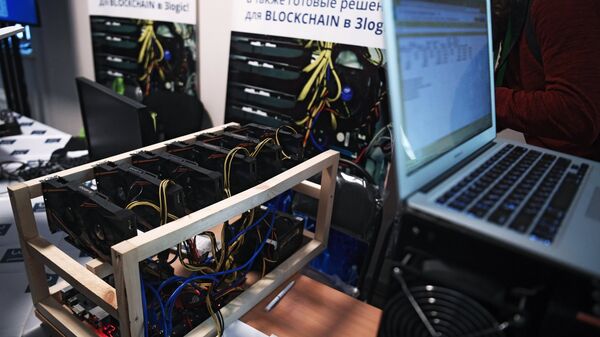According to Yury Pripachkin, president of RACIB, for quite a long time, the association has been working closely with experts from ‘Nooor’, which is a US blockchain association. They suggested our cooperation with our Iranian counterparts, who have been invited to ChainPoint 18 – an international conference held in Yerevan on November 14-15, 2018.
“So far the agreement provides for collaboration through consultation. RACIB includes companies from various areas of the crypto-industry, such as miners, traders, blockchain developers, information security specialists or lawyers. Russian developers and experts enjoy a rather good reputation abroad, so Iran’s interest to their experience is understandable. RACIB is a platform for exchange of contacts, knowledge and experience, including at the international level,” Pripachkin pointed out.
READ MORE: Bitcoin ATM Seized: India Sees Crypto Crackdown Amid Legal Gray Area
“In theory, the mechanism should be aimed at creating a domestic market through the use of cryptocurrencies in daily life: in stores, at petrol stations, or in the pension system; digital money can also be used in government contracts, thus creating a working domestic market. If investors, including foreign ones, see the market living and developing, we will be able to cooperate at the international level,” Pripachkin said when asked how the cryptocurrency mechanism would work.
To summarize, perhaps Iran will draw on the experience of Venezuela, where there is the possibility of using the petro to pay taxes, fines, deposits and utilities. Individuals and legal entities can buy digital currency through the project’s website.
It is expected that the mechanism based on blockchain would help Tehran carry out monetary transactions when Iranian banks have been cut off SWIFT.
According to RACIB, despite the fact that BITTREX and Binance, the largest cryptocurrency exchanges, have named Iran among those countries they can’t work with due to US sanctions, Iran won’t have any problems with placing their cryptocurrency.
READ MORE: Iran Legalizes Cryptomining, Moves Toward National Cryptocurrency
"There are a number of Asian exchanges, both large and medium-sized, that are interested in working in free economic zones that provide preferences for their activities. For example, Huobi is one of the large exchanges, and OKCoin is a medium-sized one. Everything will depend on the conditions offered under the Iranian jurisdiction," Pripachkin concluded.
Views and opinions expressed in this article are those of Yury Pripachkin and do not necessarily reflect those of Sputnik.




